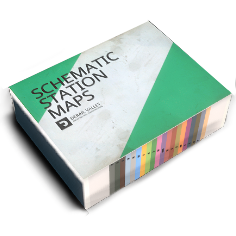Damage Overview/en: Difference between revisions
Appearance
Updating to match new version of source page |
Updating to match new version of source page |
||
| (2 intermediate revisions by the same user not shown) | |||
| Line 11: | Line 11: | ||
Each of the subsystems can also be {{pll|Servicing Overview|serviced}} individually. | Each of the subsystems can also be {{pll|Servicing Overview|serviced}} individually. | ||
If a vehicle explodes, all of its subsystems receive maximum damage. | |||
The {{pll|Environmental Impact Fee|environment too, can be damaged}}. | The {{pll|Environmental Impact Fee|environment too, can be damaged}}. | ||
Following {{pll|Driving Efficiency|driving efficiency guidelines}} helps prevent damage. | |||
[[Category:Servicing]] | [[Category:Servicing]] | ||
Latest revision as of 00:48, 18 March 2025
There are several subsystems on rail vehicles that can get damaged individually:
- Body damage
- Mechanical Powertrain Damage
- Electrical Powertrain Damage
- Wheels & Brakes Damage
- Cars & Cargo Damage
These subsystems are usually bound to fees, and their state can be seen either on a career manager printout, at a service point, or, depending on difficulty settings, in driving UI. Body damage and cars & cargo damage can also be seen on vehicles' ID plates.
Each of the subsystems can also be serviced individually.
If a vehicle explodes, all of its subsystems receive maximum damage.
The environment too, can be damaged.
Following driving efficiency guidelines helps prevent damage.
